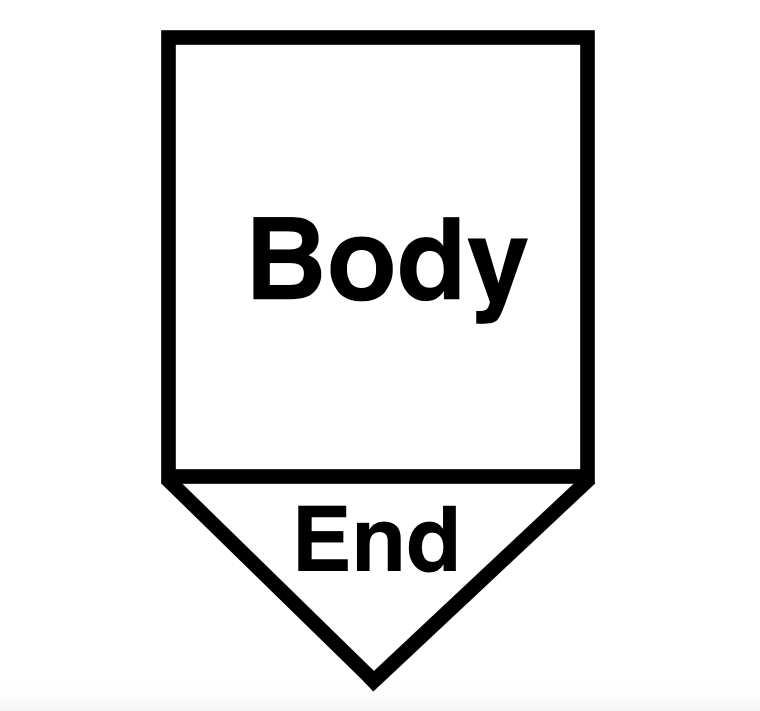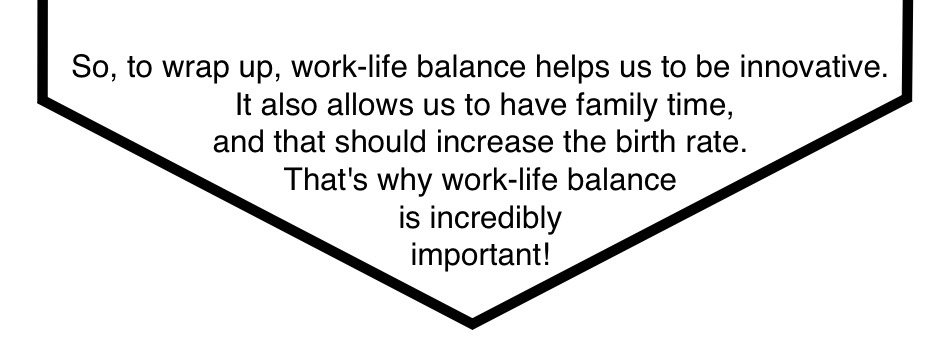
End your answer like the head of an axe
Strong answers require strong endings. This post will teach you a very simple way to end with maximum impact.
First, let's take a look at an answer with good evidence and reasoning:
Do you think work-life balance is important?
Yes, as a matter of fact, I think it's one of the most important issues facing Japan.
First of all, having free time to think and dream helps us be more creative and innovative. My company's offices in America, Australia and Europe are known for coming up with the most creative ideas. I strongly believe that it's due to the time they have to think outside the box, so to speak.
Also, we need to have family time. Japan has a declining birthrate and part of this problem is that young Japanese people simply don't have enough time to have a family life. My colleagues usually finish work after 11 p.m. and often work on the weekend. How can they have kids? They would never see their kids. If we had more family time, I think the birthrate would increase.
This answer so far is quite strong. For one thing, the speaker has started with a clear opinion. For another thing, they have plenty of evidence including a comparison of other countries and an anecdote about their colleagues. Now, let's examine two possible endings:
So, to wrap up, I think work-life balance is one of the most important issues facing Japan. We need to have free time to think of creative and innovative ideas like my company's American, Australian and European offices. Also, we need to improve work-life balance in order to encourage families to spend time together and have children, and that will improve the birthrate.
This ending is weak for a few reasons:
- It uses a lot of the same language as the answer. Repeating language should be avoided.
- It's way too long because it repeats evidence—in this case, country names. There is no need for that.
- The last phrase and especially the last word are weak. It ends on the word "birthrate" which is not the most important part of the question or answer.
Let's look at a second, better conclusion:
So, to wrap up, work-life balance helps us be innovative. It also allows us to have family time, and that should increase the birth rate. That's why work-life balance is incredibly important!
This is much stronger. Here's why:
- The language is different from the body of the answer.
- The sentences are short. Only key words are there.
- The last sentence, and especially the last word, is the key point.
One way to think of these endings is like an axe. The body is heavy. It's big. It carries a lot of power. That's why the end should come to as narrow a point as possible. Visualize it like this:

You can use strong intonation and chunk the last sentence like this, "That's why work-life balance // is incredibly // important!" So the ending can be visualized like this:

Make your endings very short—especially the last sentence; and try to end on a key word. If you end like an axe point, your answers will be much more powerful!
—
for one thing... for another thing [set phrase]—used to introduce two short examples. If you'd like to learn more transition phrases to give examples, take a look at Lesson 3 of our Transitions Course.
anecdote [noun]—a very short story, typically used in spoken English.
chunk [verb]—divide your speech into small parts. For more detail, read The English Farm's blog post about chunking.